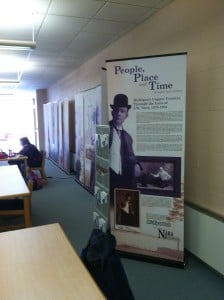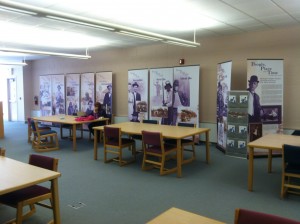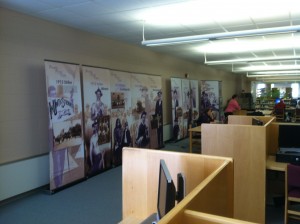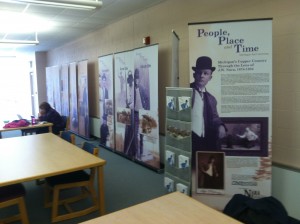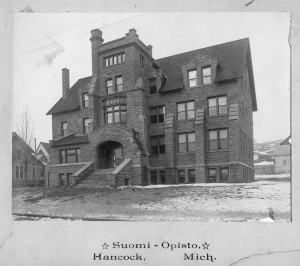
“People, Place and Time: Michigan’s Copper Country Through the Lens of J.W. Nara,” a traveling exhibit created by the Michigan Tech Archives, has moved to the Sulo and Aileen Maki Library at Finlandia University in Hancock, Michigan. The exhibit explores the life and times of Calumet photographer J.W. Nara and is open to the public through October 29, 2012 during the library’s public hours.
A public presentation is scheduled for 6:30 p.m. on Tuesday, October 2 and will feature Michigan Tech archivist Erik Nordberg. His talk, entitled “Michigan’s Copper Country Through the Lens of J.W. Nara,” features dozens of historical photographs of the Keweenaw.
John William Nara was born in Finland in 1874. He later immigrated to the United States and established a photographic studio in Calumet, Michigan, in the heart of America’s most productive copper mining region. In addition to posed studio portraits, J. W. Nara’s lens also captured the people, place, and time he experienced in Michigan’s Keweenaw Peninsula. Copper mining and industry are an important part of the story, but Nara also captured the Keweenaw’s rural landscape, including local farms, shorelines, lighthouses, and pastoral back roads.
The traveling exhibit, funded in part by descendants Robert and Ruth Nara of Bootjack Michigan, works from historical photographs held at the Michigan Tech Archives. Interpretive panels highlight the people, places, and times that J.W. Nara experienced during his lifetime and include material on urban life, farming, and the 1913 Michigan copper miners’ strike. A small exhibit catalog is available at no charge and includes three Nara photograph postcards from the collection.
The exhibit will remain on display at the Maki Library through Monday, October 29. For more information on the installation, contact the library at 906-487-7252 or via e-mail at maki.library@finlandia.edu. Addition information about the exhibit is available from the Michigan Tech Archives at 906-487-2505 or via e-mail at copper@mtu.edu.
Photographs of the exhibit installation at the Maki Library:
